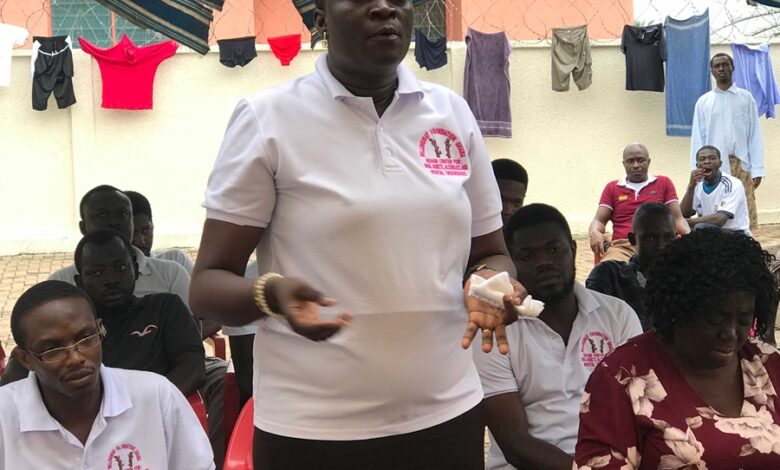Illicit opioid imports: Mental health expert urges Ghanaian government to invest in drug abuse education

Lydia Abena Manu, Addiction Specialist/ Willingway Foundation Ghana
A mental health expert, Lydia Abena Manu, is urging the Ghanaian government to invest in drug abuse education to combat the growing issue of substance abuse among the youth.
The expert recommends that the government integrate education on drug abuse into the school curriculum to equip students with knowledge of the causes, effects, and solutions to drug abuse.

Lydia Abena Manu, who is the Executive Director of Willingway Foundation Ghana, a rehab center in the Ashanti region, said the approach would help students make informed decisions and develop healthy habits.
Her statement comes at a time when Ghana is facing increasing drug abuse among the youth and recently the influx of illegal opioids, which include morphine, heroin, and tramadol, in the market.
The Minister of Health, Hon. Kwabena Minta Akandor, in Parliament, warned of a growing threat posed by illicit opioids in the country.
The Juaboso MP took immediate action, including tighter border inspections and intensified checks at major entry points to prevent unauthorised imports.
The Pharmaceutical Society of Ghana (PSGH) has also raised concern over the illicit opioid imports into the country and noted its implications on public health and national security.
Despite these measures, Lydia Abena Manu, speaking on Otec FM’s morning show ‘Nyansapo’ on Wednesday, hosted by Isaac Osei Akoto, stated that “By investing in drug abuse education, the Ghanaian government can help mitigate these factors and provide young people with the tools they need to make healthy choices”.
She emphasized that the children must be taught about the physical, emotional, and social consequences of drug abuse, including addiction, health problems, and strained relationships.
In addition, Lydia Abena Manu said they must be provided with information on how to prevent drug abuse, such as healthy coping mechanisms, stress management, and seeking help when needed.
By integrating drug abuse education, she believed that it would equip the children with accurate information to make informed decisions about drug use.
“The education will inform them about the risks and consequences, encourage children to seek help if they or someone they know is struggling with drug abuse, and promote healthy habits and lifestyles that reduce the risk of drug abuse,” she concluded.
Source: Ghana/otecfmghana.com/Francis Appiah




